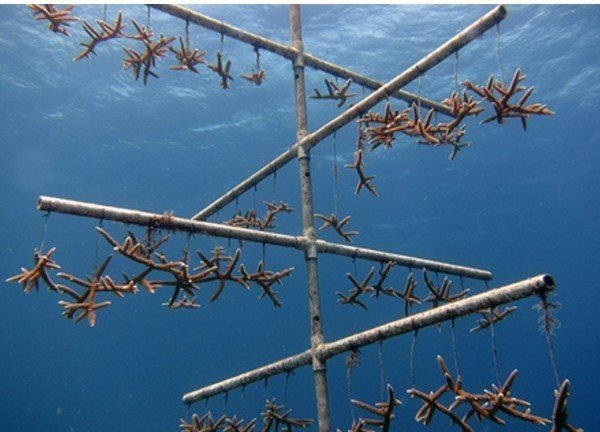EPA Research in Puerto Rico
EPA researchers are working hard to protect communities across the nation. Learn about some of the work EPA researchers are doing in Puerto Rico.
- Guide to Coral Reef Restoration Planning and Design
- EPA Researchers Partner with WaterStep to Deliver Clean Water During Emergencies
- Interactive Tool that Provides Water Quality Information about U.S. Freshwater Resources
- Clean Water Solutions for Puerto Rico's Isolated Communities
For more EPA work, see EPA in Puerto Rico.
Guide to Coral Reef Restoration Planning and Design

Coral reefs are among the most vital and diverse habitats in the world. However, climate change and human actions are severely threatening these magnificent ecosystems. EPA recently joined NOAA and the Nature Conservancy to release a guide for reef managers as they plan, design, and implement restoration projects. The guide has been used to assist reef managers in developing draft Restoration Action Plans for the U.S. jurisdictions of American Samoa, the Commonwealth of the Northern Mariana Islands, Guam, and Hawaii. NOAA also uses the Guide to support restoration planning in the U.S. Virgin Islands and Puerto Rico. Read EPA Joins the Nature Conservancy, NOAA, in Releasing Guide to Coral Reef Restoration Planning and Design.
EPA Researchers Partner with WaterStep to Deliver Clean Water During Emergencies
Following a disaster, water systems can become flooded and unable to provide safe drinking water to communities. To address this challenge, EPA researchers partnered with WaterStep to develop a portable water treatment system that can quickly and cost-effectively provide safe drinking water to affected communities following a disaster. This partnership helped provide clean drinking water in the aftermath of the devastating hurricanes in Puerto Rico. Read EPA Researchers Partner with WaterStep to Deliver Clean Water During Emergencies.
Interactive Tool that Provides Water Quality Information about U.S. Freshwater Resources
Freshwater is essential for life on our planet, providing drinking water and supporting agriculture, industry, and aquatic life. This lifeline connects humans and ecosystems with the resources they need to prosper, so when freshwater degrades, it can have significant consequences. To better understand the quality of our freshwaters, EPA scientists have developed Freshwater Explorer, an interactive web-based mapping tool that provides information about background and observed salt and mineral content for freshwater streams, lakes, and wells in all 50 U.S. states, Puerto Rico, and the U.S. Virgin Islands. Read about it in EPA Scientists Develop Interactive Tool that Provides Water Quality Information about U.S. Freshwater Resources.
Clean Water Solutions for Puerto Rico’s Isolated Communities
In rural areas in Puerto Rico, small water systems face challenges maintaining water quality due to limited resources, aging infrastructure, vulnerability to hurricanes and widespread pollution. These issues threaten water quality and public health—especially in isolated communities. Improving these water systems can lead to better health outcomes, promote economic growth, protect the environment and improve lives.
EPA researchers are working with partners to help communities in rural southeastern Puerto Rico improve water use, treatment and safety—and working to gather more data to support better decision-making and speed up long-term solutions. Read more about EPA's work to support clean water in Puerto Rico.
